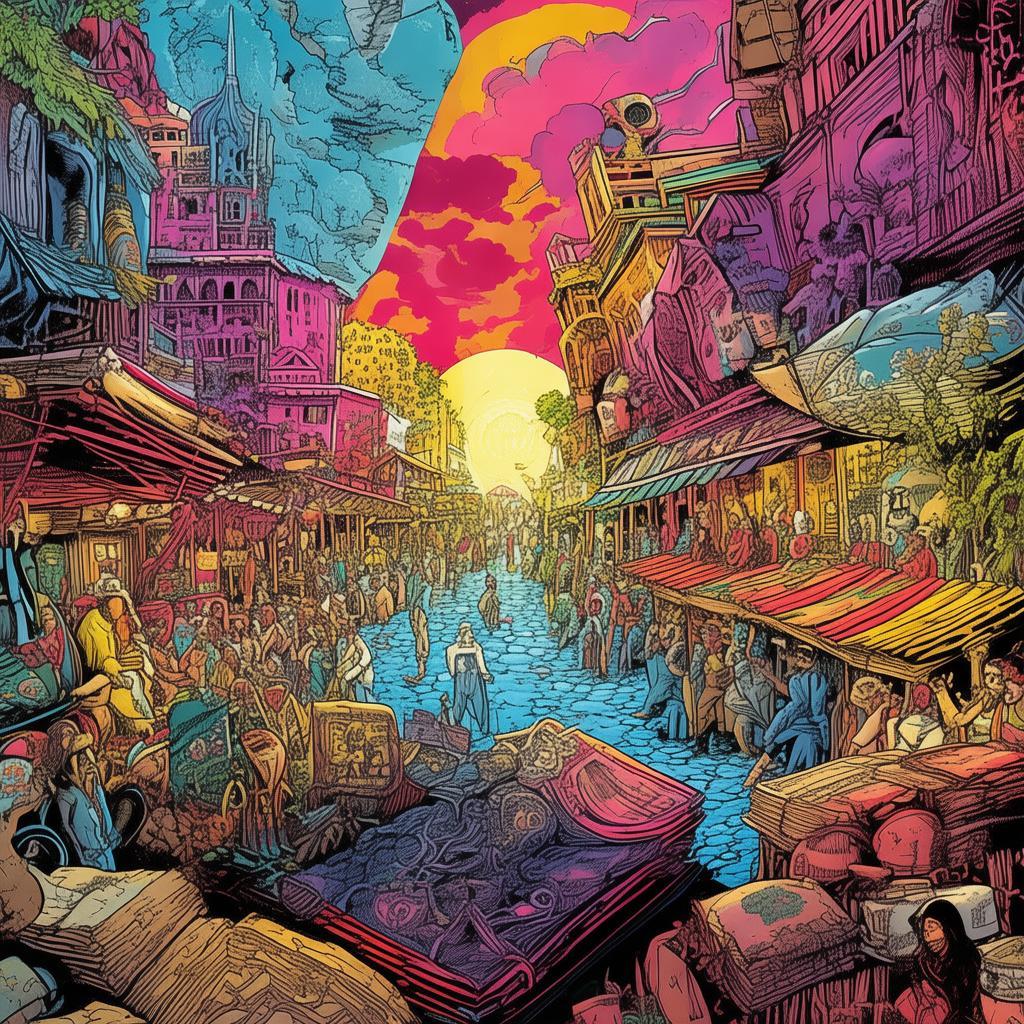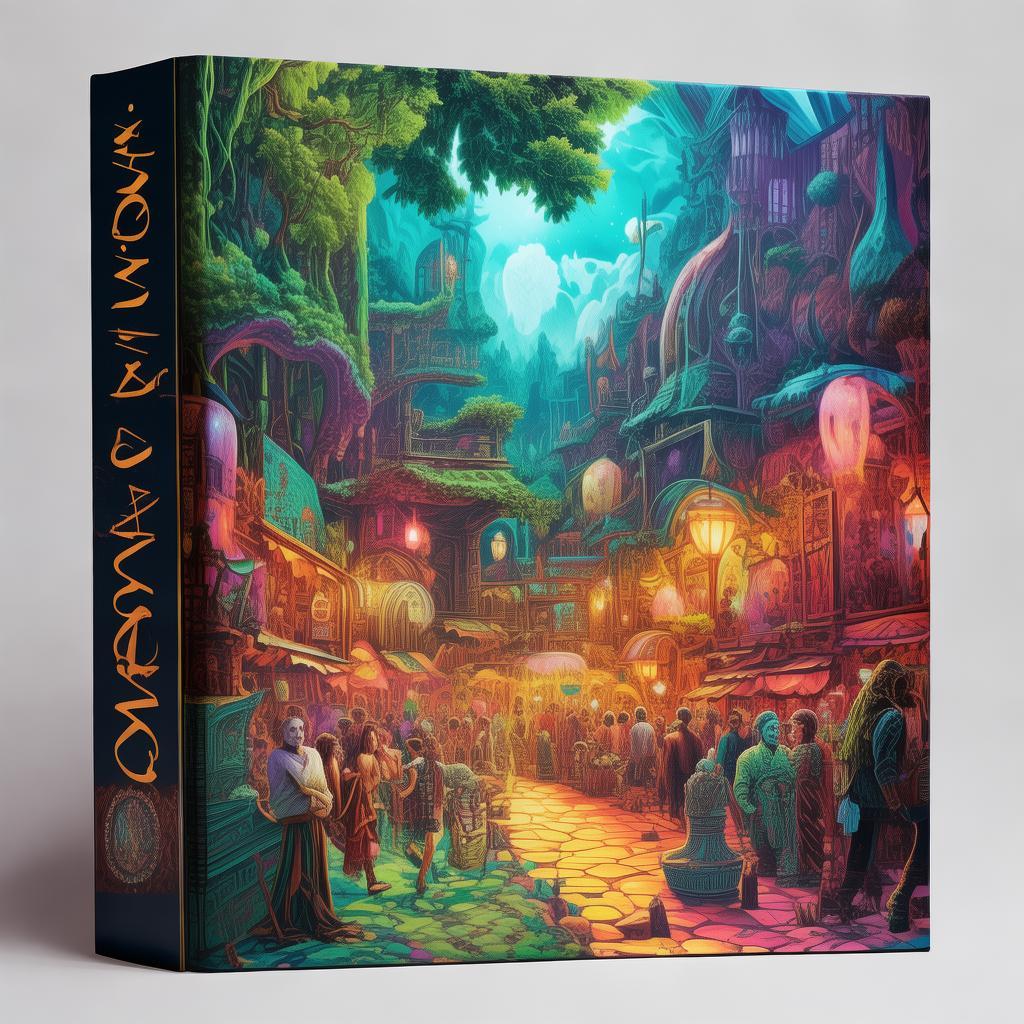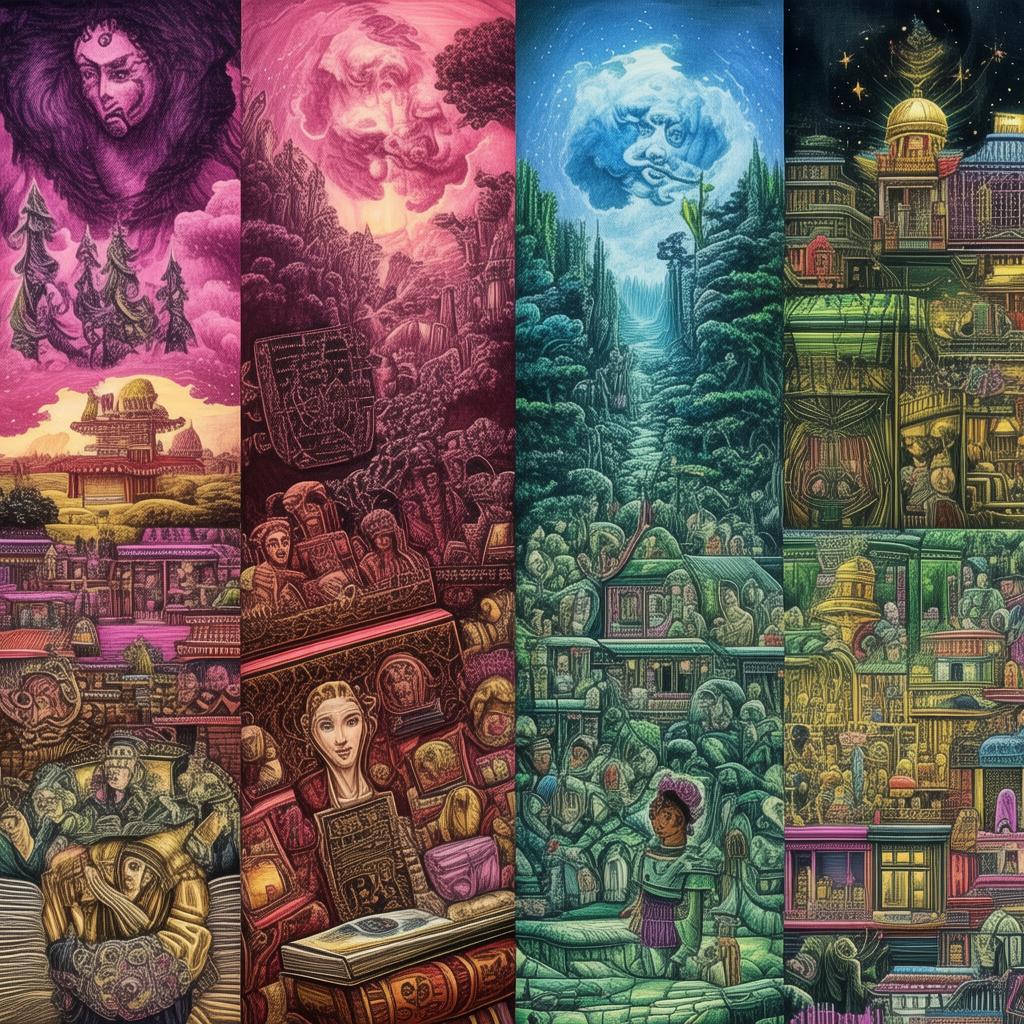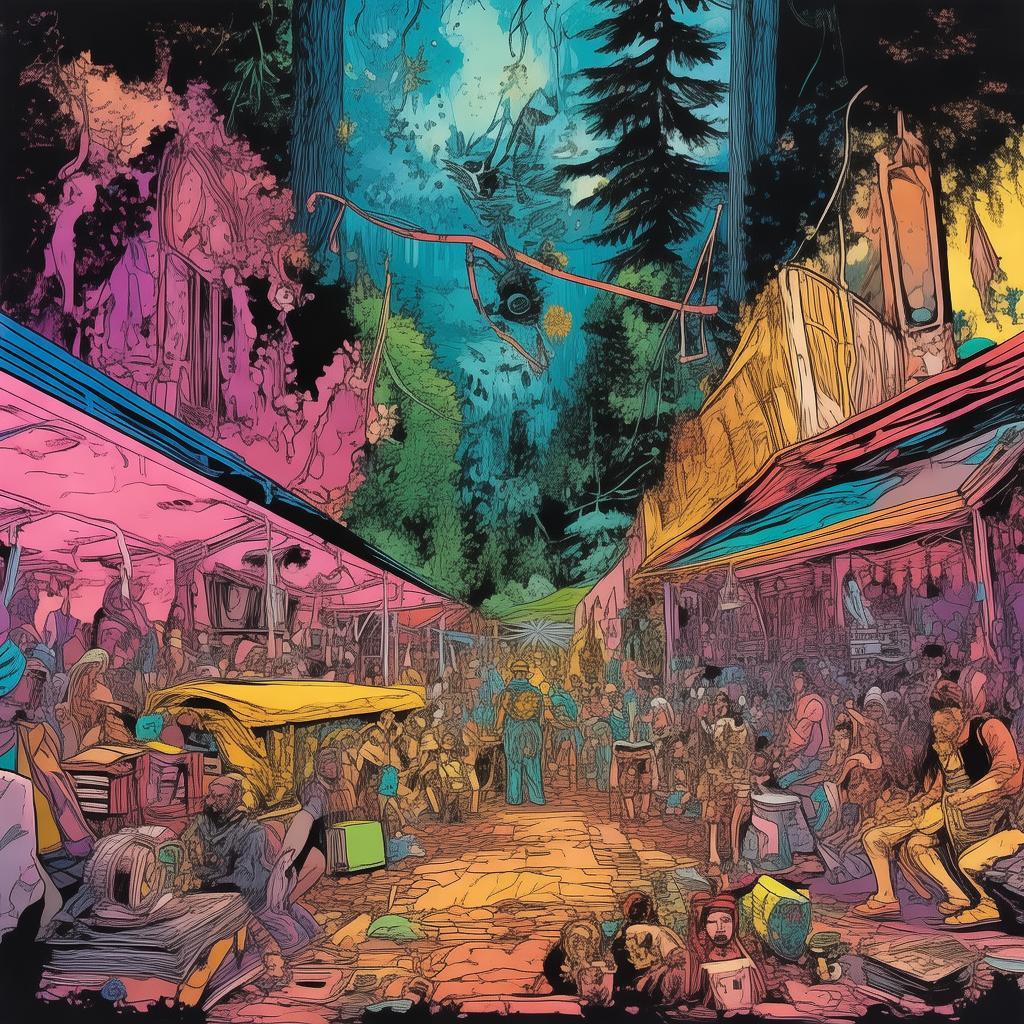Philosophers' Quest: The Pursuit of Truth in the Heart of Darkness
In the dead of night, a whisper carried on the breeze: "The truth lies within the heart of darkness." This enigmatic message reached the ears of ten renowned philosophers, each of them a beacon of knowledge and wisdom in their own right. Drawn by the allure of such an enigmatic pursuit, they gathered at the ancient ruins of a forgotten civilization, their destination a place veiled in shadows and whispers of ancient power.
The first philosopher, Plato, was driven by a quest to understand the nature of the soul. He saw in the heart of darkness a reflection of the soul's journey through the material world, a path fraught with moral challenges and existential dread.
Next was Aristotle, whose pursuit of knowledge led him to seek the ultimate cause of all phenomena. In the heart of darkness, he believed he might uncover the hidden mechanisms of the universe, a place where reason and irrationality danced together in a ballet of existence.
Then came Confucius, who sought harmony between humanity and nature. He saw the heart of darkness as a metaphor for the dissonance within human society, a place where the virtues he so cherished could be tested to the very core.
In the wake of Confucius came the stoic Seneca, whose relentless pursuit of virtue in the face of adversity fueled his journey. For him, the heart of darkness was a crucible of character, where the strength of the spirit could be measured against the tempest of doubt and fear.
Heraclitus followed, a philosopher whose philosophy of constant change and flux saw the heart of darkness as a metaphor for the ever-changing nature of reality itself.
Next was Augustine, whose quest to understand the nature of evil led him into the heart of darkness, where he sought the answer to the question of human free will and divine grace.
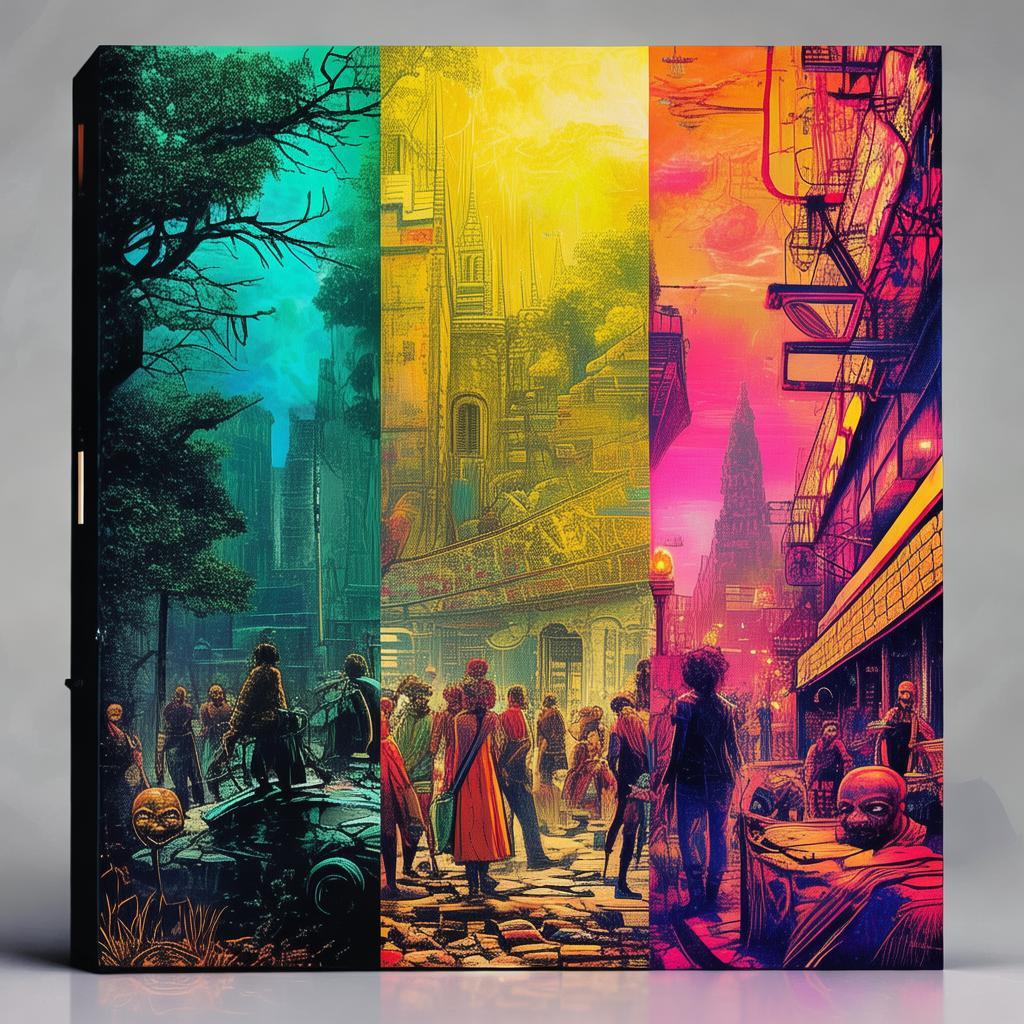
Kant came with a mind seeking the boundaries of human reason, viewing the heart of darkness as the ultimate test of moral autonomy in the face of a universe governed by laws he could not comprehend.
Darwin, driven by the question of our origins, sought in the heart of darkness the secrets of our biological evolution, the raw materials of life that shaped our world and our place within it.
Finally, Marx, whose gaze was fixed on the structures of society and power, saw the heart of darkness as the quintessential manifestation of class struggle and exploitation.
As they journeyed deeper into the heart of darkness, they encountered trials that pushed them to their very limits. A maze of shadows, their path illuminated by torches that flickered and waned, they were faced with choices that tested their beliefs and principles.
Plato was torn between the ideal and the material world, questioning the veracity of his philosophical constructs when faced with the tangible and often violent reality of human existence. "How can one reconcile the utopia of the soul with the dystopia of the body?" he pondered aloud.
Aristotle grappled with the contradiction between his belief in the natural order and the chaotic forces that seemed to defy logic at every turn. "Is the universe truly governed by the principles of reason, or is it simply an arbitrary assembly of chance and randomness?"
Confucius faced a dilemma that resonated deeply within him; how could one maintain a sense of propriety and righteousness in a world so filled with chaos and injustice? "Can virtue truly survive the corruption of society?" he asked himself.
Seneca, grappling with the inevitability of death and the fragility of human life, sought to find a balance between the passions of the flesh and the dictates of the mind. "Can we find peace amidst the storm of human existence?"
Heraclitus, watching the world around him unravel, pondered the nature of change and the constant flow of existence. "Is the heart of darkness the eternal return of the same, or the emergence of something entirely new?"
Augustine grappled with the profound question of faith versus reason, as he sought to reconcile the mysteries of the universe with the limits of human understanding. "Can we know the truth, or is it simply a fool's errand?"
Kant questioned the very nature of morality, as he stood before a world that seemed to defy his categorical imperative. "Can we establish moral laws in a universe that seems indifferent to our values?"
Darwin faced the harsh reality of the survival of the fittest, questioning whether progress and enlightenment could truly emerge from such a harsh world. "Can humanity transcend its baser instincts and reach for greatness?"
Marx, witnessing the stark inequalities and suffering that pervaded the landscape, grappled with the idea of a world driven by class conflict and exploitation. "Is there a way to create a society that is truly equitable and just?"
Each philosopher, in turn, faced their own crises of faith, each struggling to find their path through the darkness. Their dialogue, a series of intellectual duels, served to illuminate and to deepen the mysteries they had set out to uncover.
As the dawn broke over the horizon, casting long shadows over the ruins, they reached a point of truth that none of them could have anticipated. In the heart of darkness, they had uncovered not just the nature of truth itself, but the essence of their own beliefs and the limits of human understanding.
Plato realized that the pursuit of truth was an eternal journey, one that required a constant vigilance against the siren calls of materialism and the dangers of idealism.
Aristotle found that the universe was a complex tapestry of order and chaos, one that required the balance of both reason and intuition to comprehend.
Confucius learned that the heart of darkness within each of us was a reflection of the society we create, and that virtue was not a passive attribute, but an active pursuit.
Seneca concluded that the true strength of the human spirit lay in the capacity to face death and adversity with dignity and courage.
Heraclitus recognized that the heart of darkness was the essence of reality, a constant state of flux that defined the very nature of existence.
Augustine found that the mysteries of the universe could only be understood through the lens of faith and the limits of human reason.
Kant came to understand that morality was a personal commitment, one that transcended the cold calculus of reason and embraced the warmth of empathy and compassion.
Darwin discovered that humanity had evolved through a process of adaptation and survival, but that it also possessed the capacity to rise above its baser instincts and create a better world.
Marx realized that the pursuit of truth required a commitment to justice and equality, that the heart of darkness was a call to action, not just an intellectual pursuit.
In the heart of darkness, the ten philosophers had uncovered not just the nature of truth, but the essence of what it meant to be human. Their journey, their quest, had ended, but the quest for truth continued on, each carrying with them the wisdom and the lessons learned from the journey.
As they walked away from the ruins, the light of dawn now illuminating the path ahead, they knew that the heart of darkness would always be with them, a reminder of the mysteries of the universe and the infinite possibilities of human existence.
✨ Original Statement ✨
All articles published on this website (including but not limited to text, images, videos, and other content) are original or authorized for reposting and are protected by relevant laws. Without the explicit written permission of this website, no individual or organization may copy, modify, repost, or use the content for commercial purposes.
If you need to quote or cooperate, please contact this site for authorization. We reserve the right to pursue legal responsibility for any unauthorized use.
Hereby declared.

